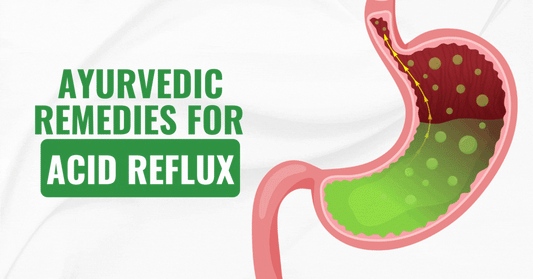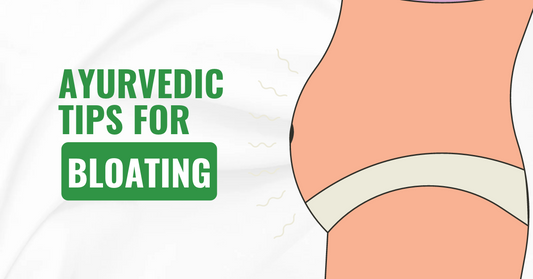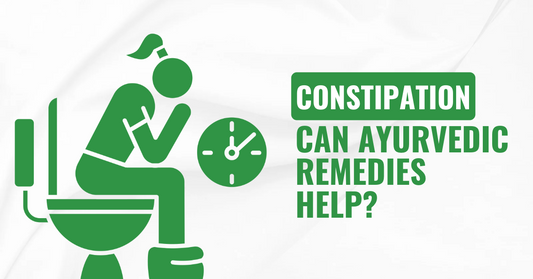What are Doshas? Types and Effects on its Imbalances
Share
Ayurveda is a huge branch of study about healing the balance of the human body and mind. This branch of medicine came into existence almost 5000 years ago. Ayurveda was introduced in ancient Vedic texts in the Sanskrit language. During that time, people use products acquired from nature to heal the human body.
The Three Doshas:
According to the Ayurvedic philosophy, universal power or force is present in the human body in the form of energies or "doshas." These 3 doshas are Vata, Pitta and Kapha. These doshas have separate functions in the body. In a normal healthy human body, the doshas are present in a balanced form. If there is an imbalance among the three doshas, then it may affect the physical and mental health of the body.
Vata Dosha:
The Vata dosha is derived from the universal elements "space" and "air." This dosha is often given the term “king of the doshas." It is known to give force to the other doshas – Pitta and Kapha. Vata ensures the regular movements of the body without interruption. The functions include absorption of nutrients, exchange of cell ions, systematic nervous system conduction, regular maintenance of body excretions, normal respiration and smooth body movements. Vata dosha is seen to function in the regular activities of the body as – excreting urine and feces, maintaining regular menstruation, generating semen and ensuring in maintaining childbirth. As it is derived from the air, it is known to help in proper digestion.
Pitta Dosha:
Pitta dosha is known to be derived from the elements "fire" and "water." Pitta generates the procedure of digestion, maintains normal body temperature, clears vision, increases appetite, maintains the required thirst for liquid, improves skin complexion, develops intelligence and maintains suppleness in the body.
Kapha Dosha:
Kapha dosha is known to be derived from the elements "earth" and "water." This dosha helps in the lubrication process in the body, strengthens the joints and increases the capacity to control mental stress. The saliva and other gastric juices needed to digest food, along with the sense of different tastes on different portions of the taste buds on the tongue, are generated by Kapha. Since this dosha helps in the lubrication process, it helps maintain a smooth body movement by lubricating the joints. It also regulates the cardiovascular and pulmonary functions in the body.
Imbalance of the 3 Doshas:
These three doshas function together to maintain a proper balance in the body and mind. When there is an imbalance in any one of the doshas, it becomes the reason for sickness. There are various types of diseases formed due to the imbalance. To stay healthy and live a life devoid of sickness, one needs to maintain the balance of the doshas.
Vata Imbalance:
Physical Discomfort in Vata imbalance – In the case of Vata imbalance, physical problems like constipation, stomach gas, dehydration, rough skin, body ache, fatigue, interrupted sleep pattern, dizziness and sensitivity to cold and hot sensations are very common symptoms.
Mental or Behavioral Problems – In this imbalance, the most common behavioral problems are irrational behavior, anxiousness, nervous tendency, agitated behavior and impatience. Most people suffering from this imbalance tend to develop the habit of running away from their problems. Other behavioral problems include confusion, shaky and frightened behavior, and constant movement and talking.
Pitta Imbalance:
Physical Problems – Problems and discomforts like excess of hunger and thirst, gas and acidity, burning of eyes, sole of the feet and hands, rashes, acne and boils, bile vomit, extra sensitivity to bright light, body odor, headache, nausea, loose motion, the perpetual presence of bitter taste in the taste buds, and heat-sensitive are the most common symptoms found in pitta imbalance.
Behavioral Problems – Annoyed behavior and action, the tendency to be critical and judgmental, anger issues, aggressive nature, restlessness, and frustrations are the few mental or behavioral problems in Pitta imbalance.
Kapha Imbalance:
Physical Issues: Lethargic feeling, loss of appetite, nausea, congestion and excess mucus formation, secretion in the mouth, trouble in breathing, excess sleep, and perpetual sweetness in the mouth are the physical symptoms of the Kapha imbalance.
Behavioral Problems – Heavy feeling, depression, dullness and inactiveness, lack of love and support, and greed and possession are some of the mental or behavioral problems seen in Kapha imbalance.
End Notes
In case of discovering any of the physical or mental problems due to the imbalance of the three doshas, the people should immediately seek medical advice to retain the normal balance. In Ayurveda, there are a variety of medicines or supplements available for this kind of treatment. One can contact their health care provider to seek proper treatment methods to bring back the balance and stability of the three doshas.



